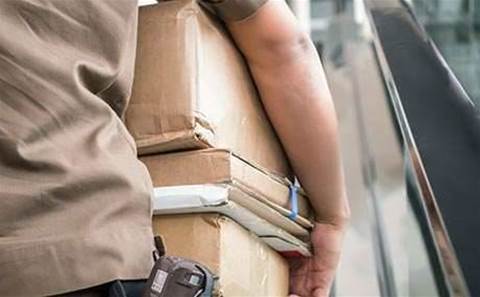Australia Post has revealed ShopMate, what it calls "a convenient and secure delivery service for Australian online shoppers, enabling them to buy from US retailers who do not ship to Australia".
The service, which is being launched in time for Christmas, shows AusPost cashing in on the demand from shoppers to buy cheaper goods from the US.
The Australia Tax
Considering the notorious 'Australia Tax' on electronics goods, could Australia Post's new service push parallel imports from the US into the mainstream?
The issue of Australians paying higher prices for electronic goods was thrown into the public spotlight last year during the "Inquiry into IT Pricing" by the House Standing Committee on Infrastructure and Communications. One of the committee's recommendations was to lift restrictions on parallel imports.
Asked whether ShopMate would drive so-called 'grey market imports', an Australia Post spokesperson told us: "The same rules apply for purchases made online from international locations whether purchased through ShopMate or another method and Australian Customs and Border Protection Service manage the process for the importation of goods.
"ShopMate was created to meet the changing needs of our customers who want access to international brands and products which are not available locally. With record numbers of Australians now shopping online, we’re committed to providing Australian consumers with trusted parcel delivery services and online payment options, no matter where they purchase their items from."
How does ShopMate work?
Users can set up a free account on ShopMate, and they are given a US delivery address.
They can use this address to order goods from a US online retailer and, as long as the merchant accepts Australian credit cards, the goods will be shipped to this ShopMate address.
According to the ShopMate website, "Once your shopping arrives at your US address, we’ll let you know what the shipping charges to Australia will be. You can pay with Visa or MasterCard."
Will this service help consumers save money by circumventing established channels? We wanted to find out.
CRN set up a ShopMate account and we were given a street address in Portland, Oregon (perhaps because the state has no sales tax). Then we set about doing some comparisons.
Now, what follows is an inexact science. Australia Post calculates postage prices based on either actual weight or 'cubic weight', which is derived from the dimensions of the parcel. This means it is challenging to work out the exact shipping costs without being able to measure or weigh the packaged items.
The international shipping to Australia is charged at A$24.95 base rate, plus A$5.95 per 500g.
The ShopMate website provides potential shipping rates for example products, such as a 300g personal hard-drive costing A$30.90 to ship.
We used this as our first test. A 1TB Seagate Wireless Plus mobile storage device retails at A$239 on the Seagate Australia webstore, rising to A$251.65 with shipping.
The same hard drive costs US$179.99 at the vendor's US webstore, which offers free shopping – so A$205.80 for the same device.
Based on Australia Post's sample rate of A$30.90, getting the hard drive shipped from our US ShopMate address would cost a total of $236.70, or a saving of A$14.95.
Would a typical shopper go to all this trouble and wait for the extended international delay to save $15 on a portable hard drive? Unlikely, and it seems the same would be true of many popular gadgets when the savings are marginal.
A 64GB iPad Air 2 with wi-fi and cellular costs A$899 at Apple's Australia online store or US$729 (A$835) from the States: just $64 more (Apple offers free shipping in both countries).
The iPad weighs 444g, according to Apple, and without having the packaging handy, we can only guess at the final size and weight. Assuming Apple's streamlined packaging increased the size up to an actual or cubic weight of 1kg, that'd mean a ShopMate shipping cost of A$36.85.
It's unlikely the overall saving of A$27.15 is going to win over anyone but the most frugal shoppers (not to mention they'd also need to spring for a local charger).
Making savings
However, there are products where the savings seem to good to ignore.
We examined the prices of the Lenovo ThinkPad X1 Carbon. The model we look at boasted an Intel Core i7 processor, 8GB RAM and a 256GB SSD. The device had an RRP of A$3169 on Lenovo's Australian website, and US$2099 (A$2402.70) in the States. Both stores offered free shipping.
The sleek X1 Carbon weighs a mere 1.28kg, so we assumed that the cubic weight would be greater than the actual weight.
The laptop measures 33.1 x 22.7 x 18.5cm, so we added 5cm to each dimension for a guesstimated carton size (we told you it wasn't an exact science).
For cubic weight, Australia Post charges its international shipping using the calculation 'height x width x depth divided by 5,000'.
A carton size of 38.1 x 27.1 x 23.5cm would mean a cubic weight of 4.8kg, or a shipping cost of A$84.45.
At that rate, buying the X1 Carbon from the States would cost us A$2487.15. That adds up to a pretty serious saving of A$681.85 over the local RRP.





_(21).jpg&h=142&w=230&c=1&s=1)



.jpg&h=142&w=230&c=1&s=1)




.jpg&w=100&c=1&s=0)











